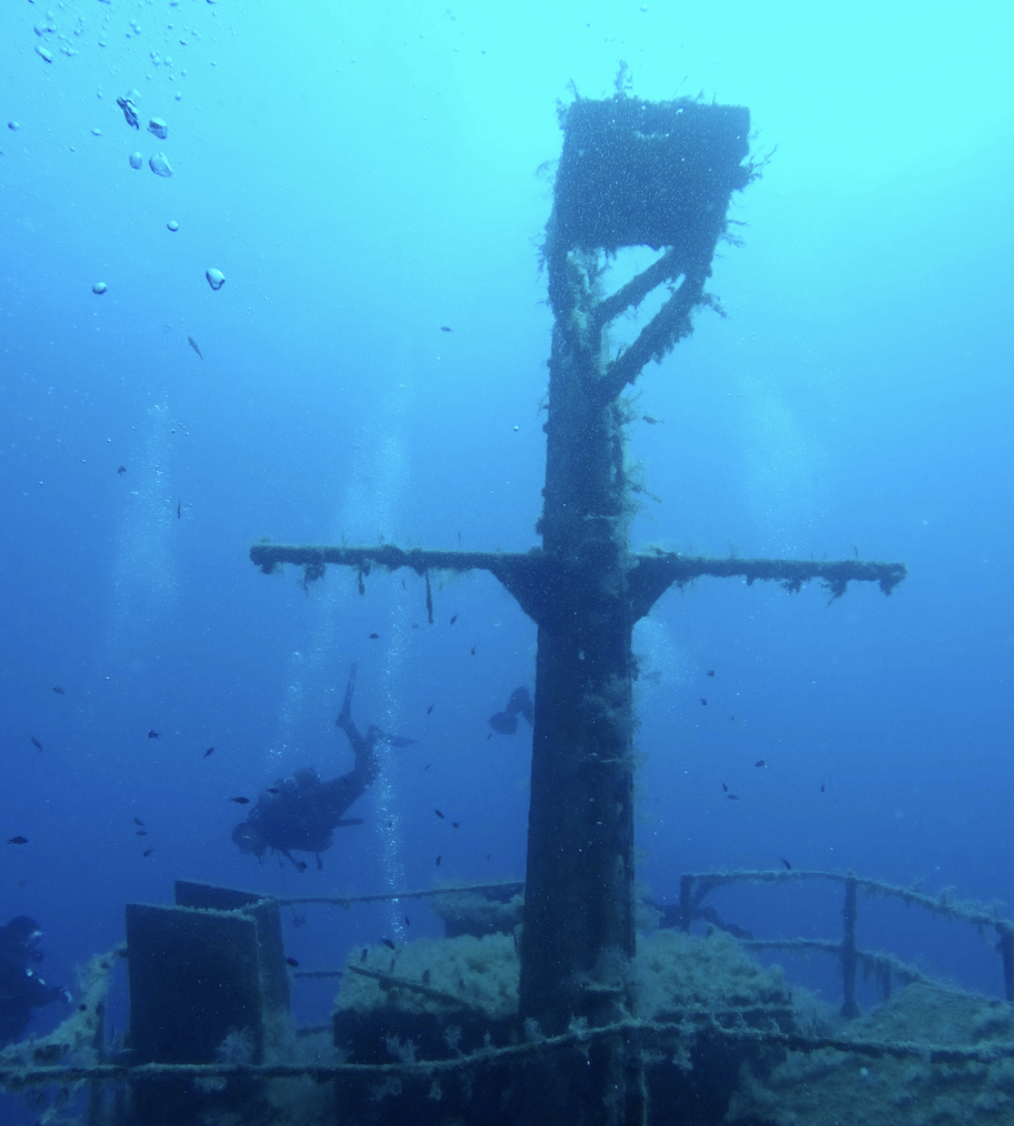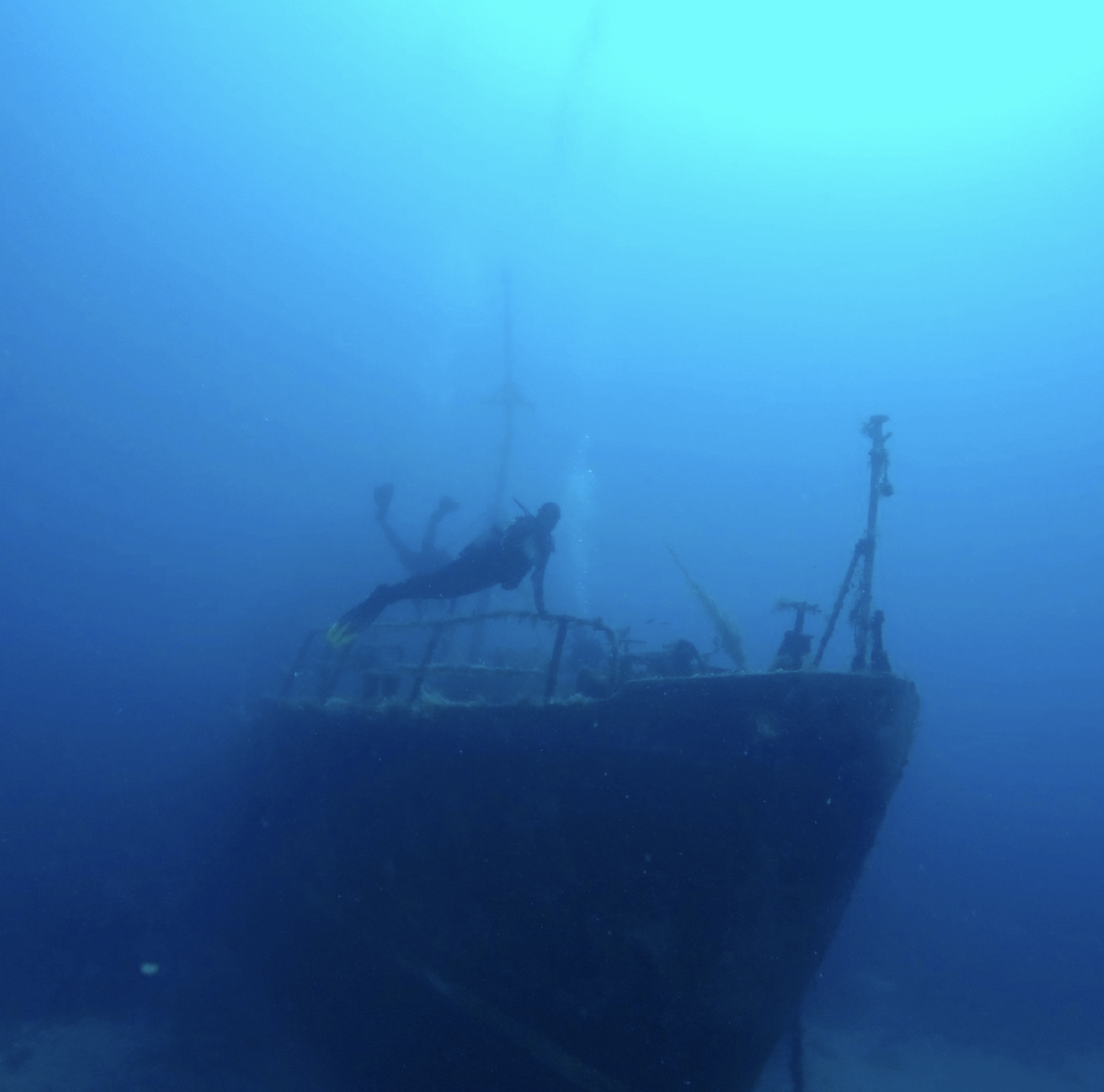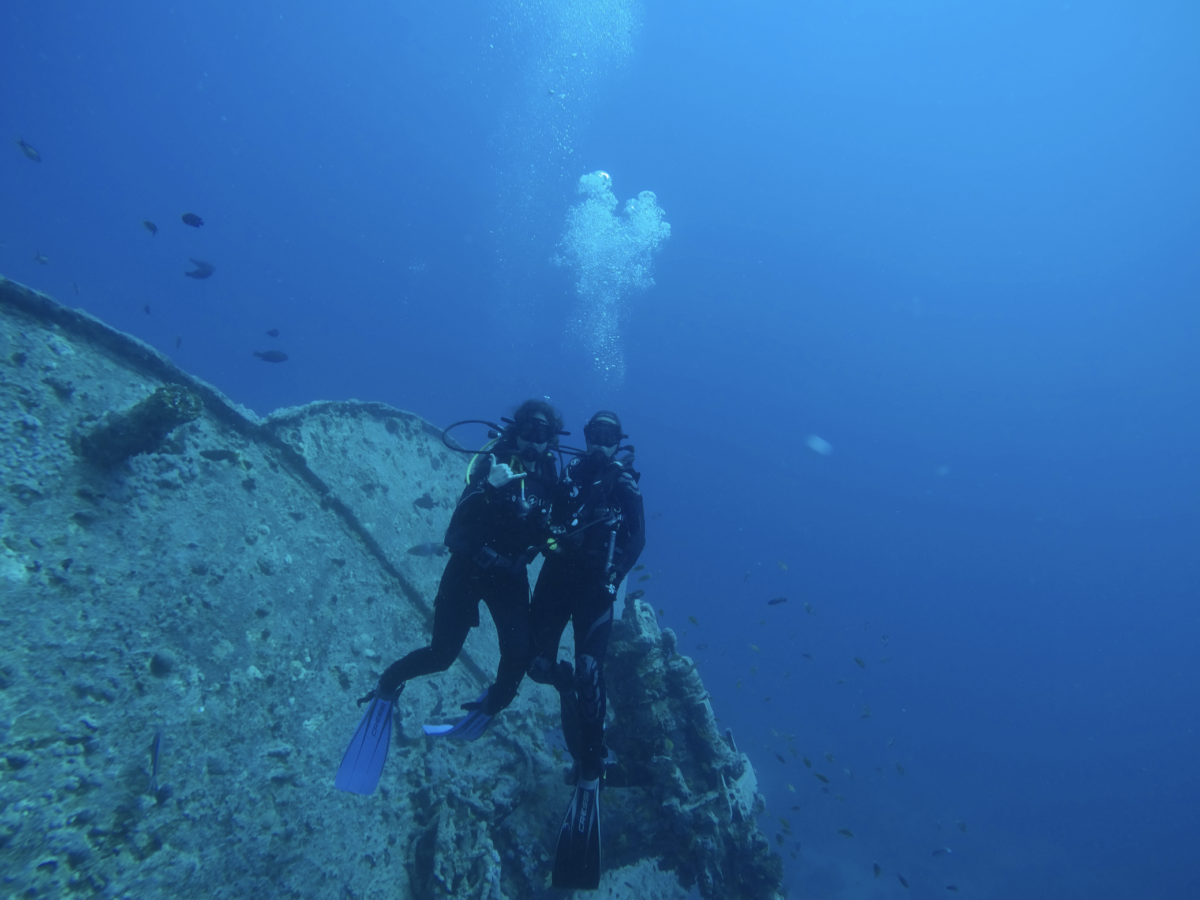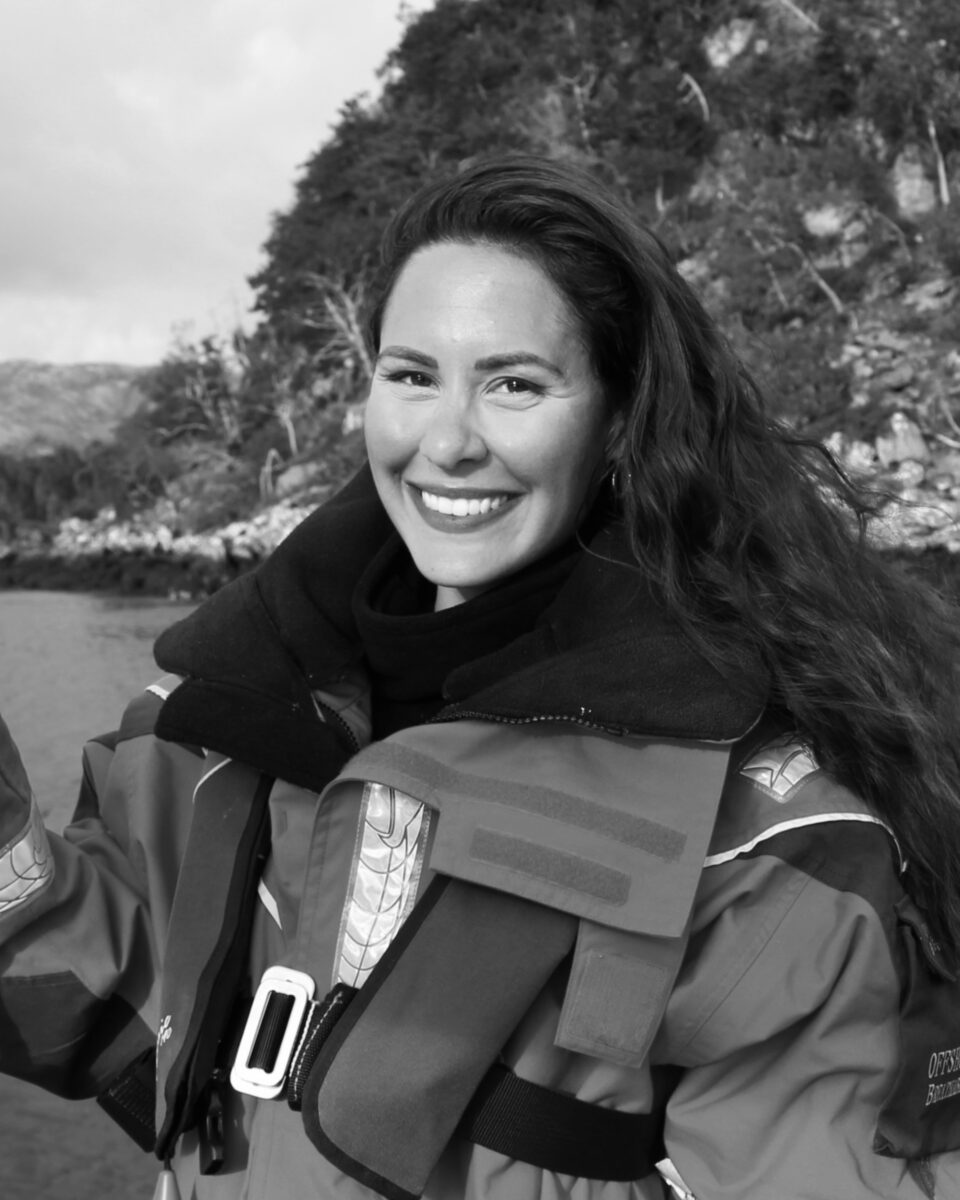
Merhaba and Hallo! My name is Arzucan Askin (to most people I am simply known as “Arzu” or “Zuzu”) and I am incredibly excited to invite you to come along on my journey as the 2021 European Rolex Scholar of the Our World-Underwater Scholarship Society. I’ll be sharing stories from the sea and my year of advanced dive training with you via this blog (subscribe), on the OWUSS European Rolex Scholar Facebook page and on Instagram.
Before we dive into the amazing adventure and months full of learning ahead of me, I’d love to introduce myself properly to you:
I’m absolutely in love with all things “ocean”, a true thalassophile, and above all (or shall I say, below), I am deeply passionate about scientific exploration, marine conservation and the preservation of underwater cultural heritage.
Born in landlocked Berlin, Germany, to a family of Turkish immigrants, I spent all my childhood summers in the Mediterranean, watching little Loggerhead sea turtles (Caretta careatta) hatch and playing in lush Neptune seagrass meadows (Posidonia oceanica). As far as I can remember, I have been captivated by maritime folklore and human connections to the sea – in fact, the first book I learned to read told the story of a mermaid who travelled around the world with a fisherman and a seagull. 8-year old me dreamt of following in her footsteps and so my mother always had the difficult task of getting an aspiring water nymph back onto land before sunset. I will never forget the first time I observed a group of underwater archaeologists excavate remnants of old Greek merchant ships – it was the experience that left me with no other option but to learn how to dive. I have been profoundly enchanted by shipwrecks and submerged landscapes ever since!
My passion for the preservation of all the beauty (both human and natural) that lies beneath the surface took me on a slightly unconventional path, and away from the Aegean coast of Turkey, to an urban metropolis on the other side of the world: Hong Kong. At Li Po Chun United World College, I was first introduced to scientific diving and underwater and had the incredible opportunity to spend 2 years supporting coral reef monitoring in Hoi Ha Wan Marine Reserve. Experiencing the devastating impacts of dynamite fishing during a training dive and assisting with the tracking of illegal fishing activities in Malaysia, opened my eyes to the increasingly inequitable suffering of people and wildlife under the consequences of failing environmental governance. As I started to grasp the extent to which environmental issues at sea are ultimately the result of human processes and governance on land, I decided to pursue my undergraduate degree in Human Geography at the London School of Economics (LSE). There, I specialised in political ecology and sustainable development, studying the myriad of ways in which the wellbeing and history of our human society are interconnected with that of the environment.
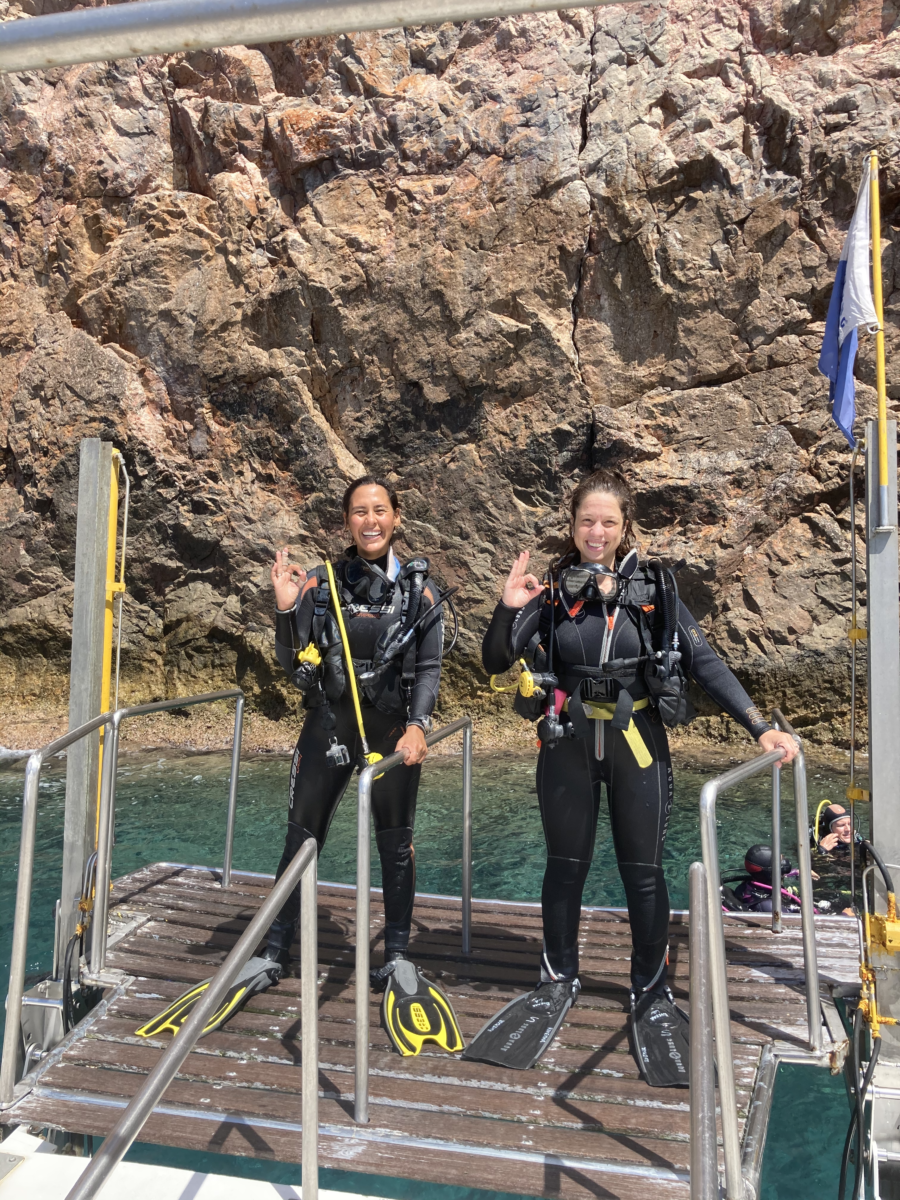
After a successful dive and training in the waters of beautiful Cabo Tinoso National Park, Spain, with my best friend Melike 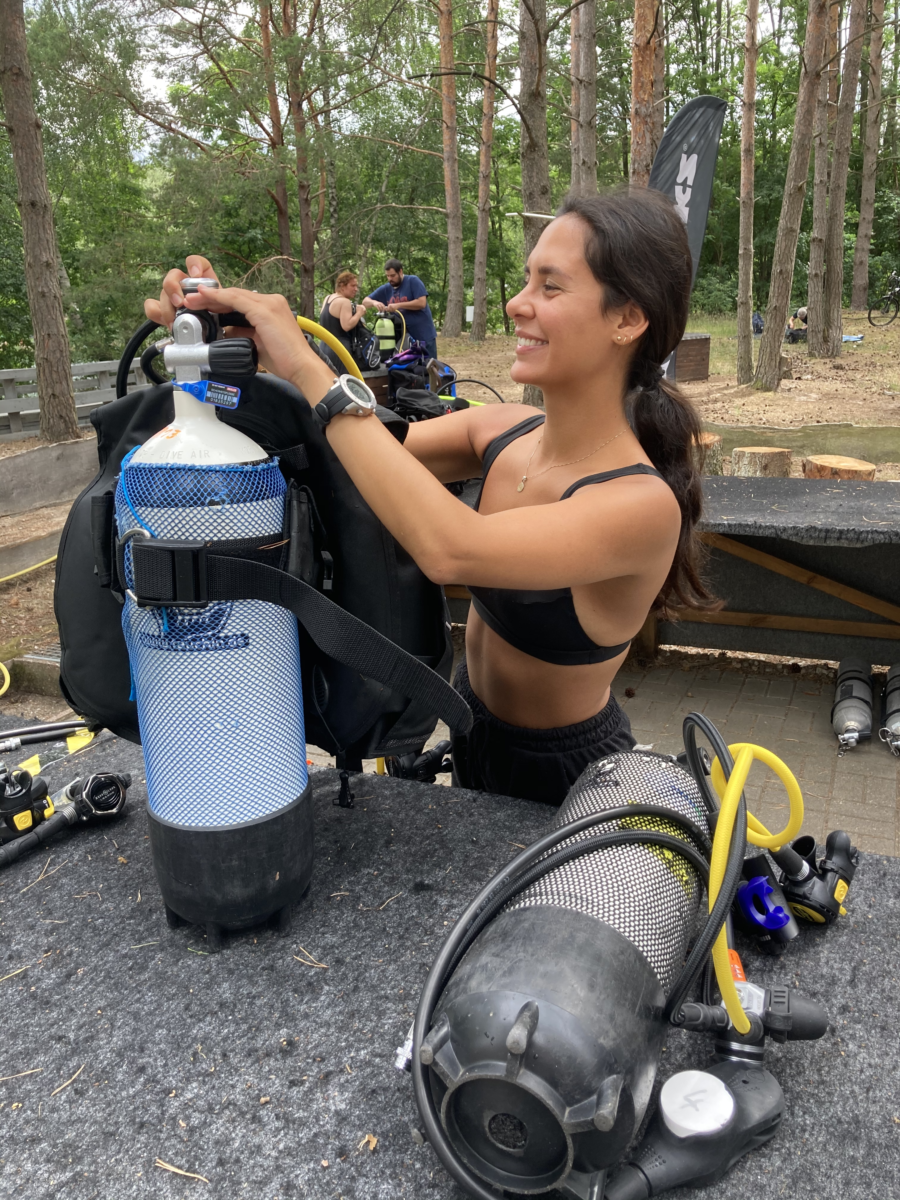
From sea to land: plenty of excitement while preparing for my first ever lake dive in the middle of a little forest in Ruhlesee, Germany
A series of inspiring lectures at the Royal Geographical Society (RGS-IBG) ignited my passion for scientific exploration and interdisciplinary research work in the field. Before graduating, I put my all into founding the LSE Marine Social Science Expedition together with Sail Britain, and led what became the first of many wind-powered “Anthroposea” projects that advocate for the integration of the social sciences into marine research. After all, to effectively protect the ocean we need economists, lawyers, political scientists and anthropologists just as much as we need marine biologists!
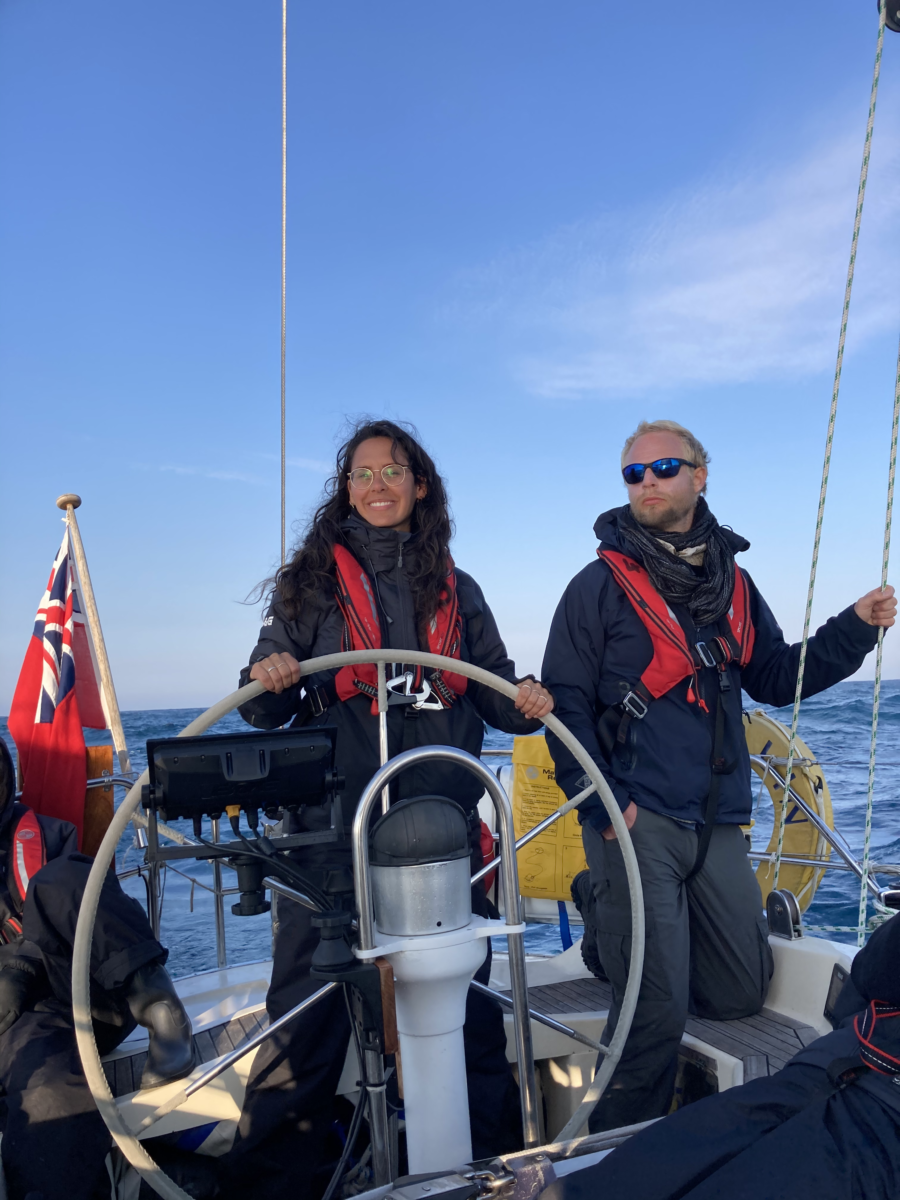
At the helm with my dear friend Oliver Beardon, the Director of Sail Britain, while sailing along the coast of Cornwall on a research project.
Photo by Michelle Sanders.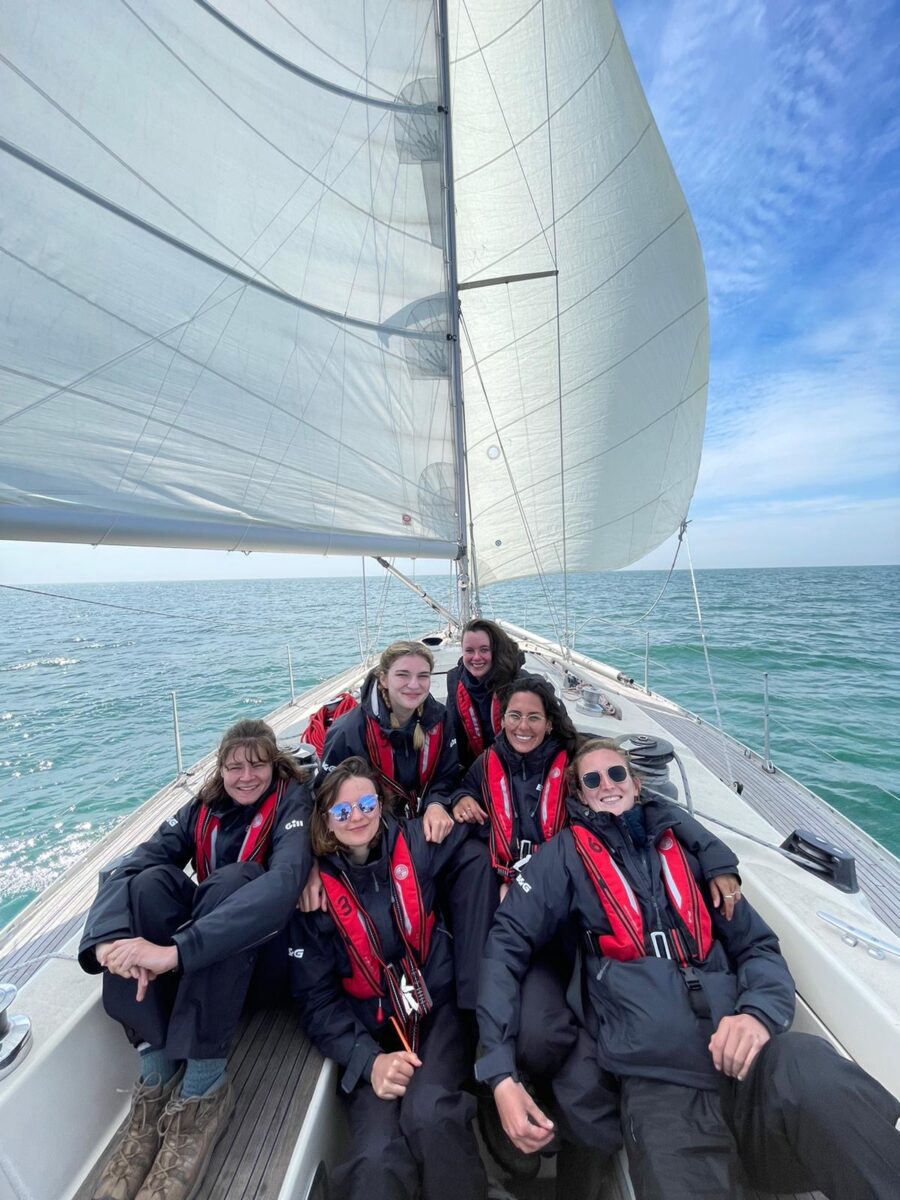
Sailing on Sail Britain’s flagship vessel “Merlin” together with the most inspiring crew of marine social scientists during the Anthroposea Expedition. Photo by Oliver Beardon.
As I continued on a path fuelled by the passion help both people and planet, I became a Fellow of the RGS-IBG and plunged into research that explored a plethora issues, such as illegal wildlife trafficking and marine plastics with the World Bank’s West Africa Coastal Areas Program, or gender and coastal climate resilience in Cuba with the RGS-IBG. However, what fascinated me most during these field assignments was discovering the many nuances of human-animal relationships and biodiversity conservation: from the extinction risk faced by the Cuban garfish to the trafficking of endangered shark species on the high seas. That being said, I have to confess that my scholarship year starts with a slight delay, as I spent the past twelve weeks completing my MSc in Biodiversity, Conservation and Management at the University of Oxfordspending plenty of hours finalising my thesis on anthropogenic disturbance of whale sharks in the Maldives with Dr Lisa Wedding’s Seascape Ecology Lab.
From celebrating matriculation in traditional academic dress and true Hogwarts-style in September 2020 … Photo by Lucas Troadec. 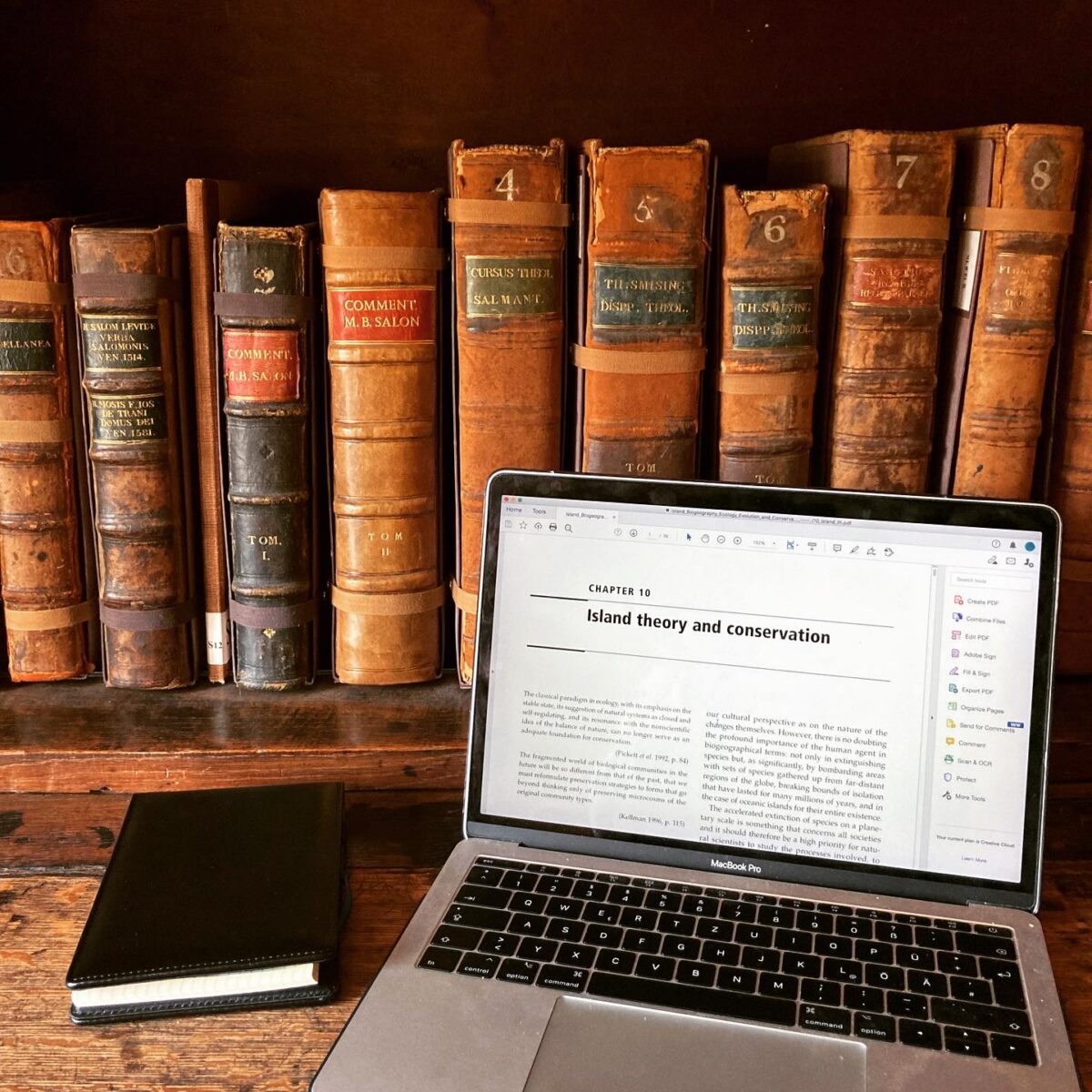
…to writing my thesis in the beautiful and historical Oxford libraries surrounded by plenty of old books… Photo by me. 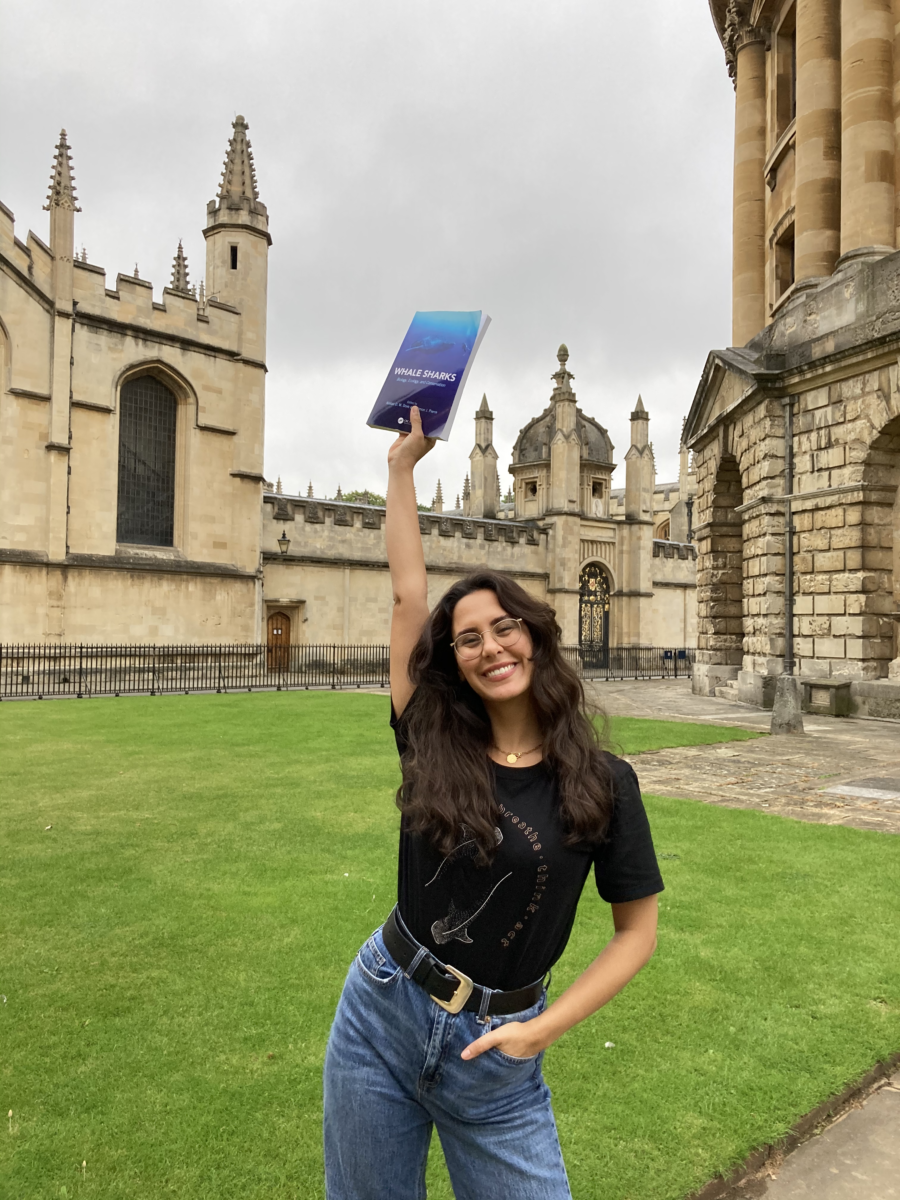
…to completing it and obtaining Dr Pierce’s new book on whale sharks as in September 2021. Photo by Gwendolyn Whidden.
After a very long desk-based year of studying in the midst of a global pandemic (need I say more?), I couldn’t think of anything better than to get back into the water and spend the next months immersed in advanced dive training and underwater research. During my scholarship year, my primary goal is to “skill-up” by pushing beyond the boundaries of recreational diving through technical diving and building on my scientific diving skills, whilst gaining proficiency in underwater film and photography. I aim to focus on researching, documenting and communicating the many stories and issues that emerge where our human societies meet the sea, feeding my never-ending curiosity for the exploration of our beautiful ocean and learning about innovative marine technologies.
Ultimately, my objective is to return back to land with advanced diving and underwater storytelling skills, and a mind full of transformative solutions for the protection of marine biodiversity and the livelihoods that depend on it.
I am inexplicably grateful to the Our World Underwater Scholarship Society and Rolex for turning my scholarship dreams into reality and enabling an entire year of oceanic learning. I also want to thank all the amazing sponsors for their generosity, particularly Fourth Element, Halycon and Reel Diving for my diving equipment, Suunto for my dive computer, Reef Photo and Video, and Nauticam for my underwater camera setup as well as all the hosts who are so kindly offering unforgettable dive opportunities and opening up their homes. Lastly, heaps of gratitude go to my family and friends who never cease to support my underwater aspirations, no matter how far away they take me from land.

This image perfectly sums up how feel about being the 2021 OWUSS European Rolex Scholar. Photo by Yasmina Gemi.
With the beginning of the United Nations Decade of Ocean Science for Sustainable Development (2021-2030), I could not imagine a more suitable time to become an Our World-Underwater Scholarship Society Rolex Scholar. I cannot put into words how excited I am to embark on this scholarship year! Join me on this unforgettable adventure and come along what will most certainly be the most transformative step in my journey as a diver, scientist and marine conservationist. It’s time to dive in!
